+91-9872940237

Introduction
Epilepsy surgical procedure helps in removing the part of the brain which had seizures. The surgical approach is always beneficial when the seizures have occurred in just one place. Although it is not categorized as the first line of treatment. The patient’s eligibility for the surgery is determined by performing different tests.
What is the need for the surgery?
Epilepsy surgery is the choice when medications cannot control the extent of seizures. In medical terms, it is known as medically refractory epilepsy or drug-resistant epilepsy. Through the surgical approach, its extent is limited and seizures are stopped, without the need of giving medications.
What is epilepsy that is not controlled?
In the case of poorly controlled epilepsy, there can be different complications and risk factors like:
-
- Depression & Anxiety
- Sudden death (a rare complication of epilepsy)
- Drowning (during swimming or bath seizures occurred)
- Physical injuries during seizures
Developmental delay in children
- Problem with thinking skills and memory getting worse
What are the types of epilepsy surgery?
Brain cells that lead to the abnormal activity will lead to epileptic seizures. The surgical approach will depend on the neuron location which begins the seizures and patient age. Type of the surgical methods are:
Resective Surgery
During resective surgery, a small part of the brain is removed. The surgeon will take out the area where seizures have taken place which is:
-
- Tumor sir
- Malformation
Brain Injury
This surgical approach is carried out in the areas which keep a check on your emotions, language comprehension, and controls visual memory.
Deep Brain Stimulation
The device is used in the implanted interior of the brain which allows the electrical signals. With this approach, MRI is used. The device which sends an electrical pulse is lodged on the chest.
Laser Interstitial Thermal Therapy
LITT is categorized as less invasive surgery which makes use of the laser and destroys the brain tissue. Through the use of MRI, the surgeon will be able to use the laser precisely.
Corpus callosotomy
During this surgical approach, the surgeon partially or totally will take out the nerves connecting with the brain on the left and right side. The children with problems of abnormal brain activity are benefited from this surgery.
Hemispherectomy
In this surgical approach, the folded gray part of the brain is removed. The children who are having seizures due to multiple sites are benefited from this. The problem can be from birth or during the infant stage.
Functional Hemispherectomy
This procedure helps in taking out the connective nerves. The surgery is useful for children as the actual part of the brain is not removed.
Are There Any Risks?
Some of the possible risk factors are:
- Language and memory issue which makes it difficult to use & understand language.
- Headache
- Stroke
- Extreme mood change or depression affect your social life
How is Abnormal Brain Activity Evaluated?
- EEG (Baseline electroencephalogram)
- Video EEG
- MRI (Magnetic resonance imaging)
Some of the additional tests are:
- Video EEG with invasive electrodes
- Invasive EEG monitoring
- Positron Emission tomography (PET)
- SPECT (Single-photon emission computerized tomography)
How is the brain function evaluated?
Some of the tests which can be performed are:
- Wada Test : The medicine is injected into the brain (on one side). You need to do a test based on memory and language.
- Functional MRI : During reading or listening the brain activity is checked. The surgeon understands the precise location which manages certain functions.
- Brain Mapping : On the brain surface, small electrodes are placed. After the surgery, you need to carry out different tasks which help to understand brain activity.
